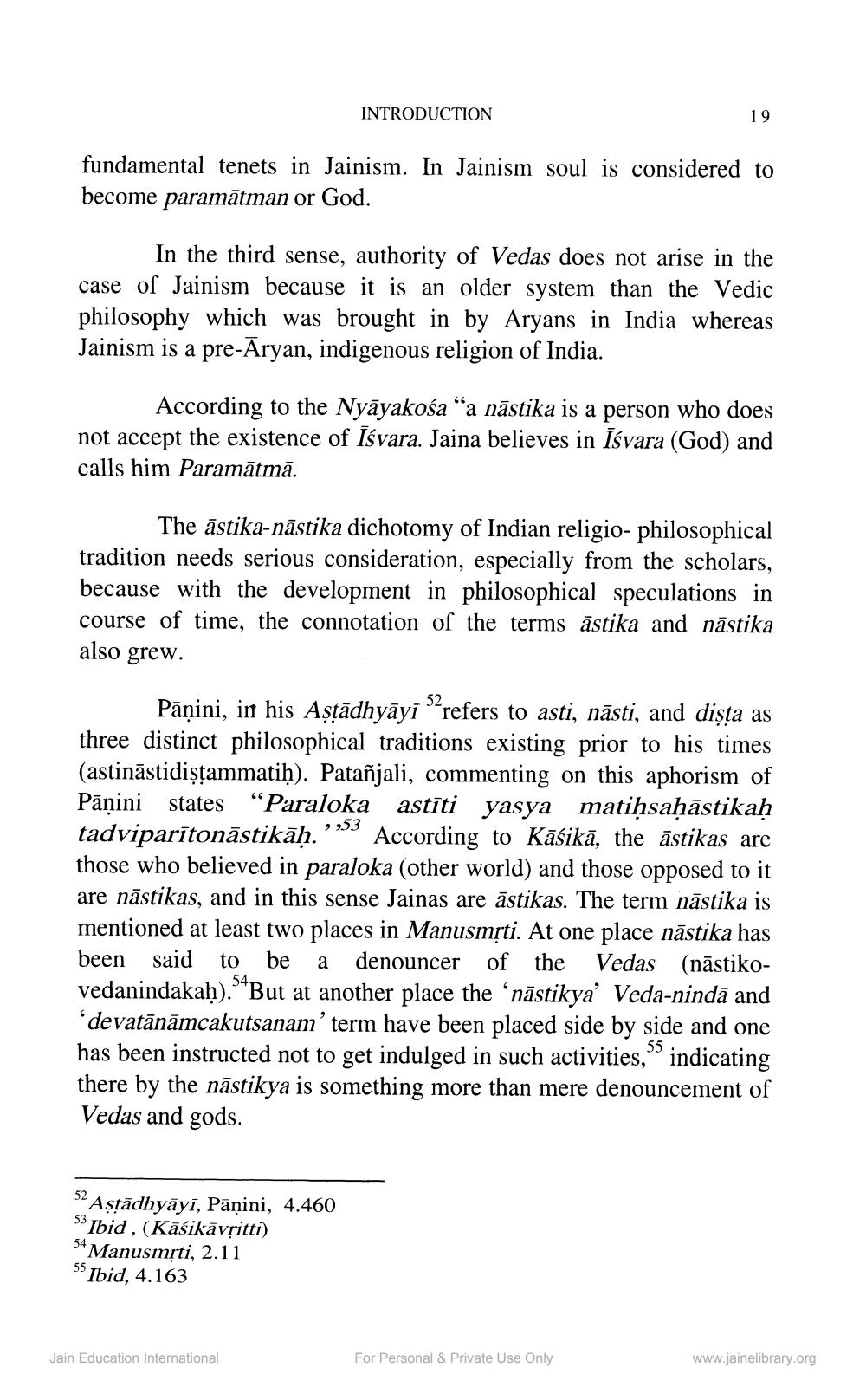________________
INTRODUCTION
19
soul is considered to
fundamental tenets in Jainism. In Jainism become paramātman or God.
In the third sense, authority of Vedas does not arise in the case of Jainism because it is an older system than the Vedic philosophy which was brought in by Aryans in India whereas Jainism is a pre-Aryan, indigenous religion of India.
According to the Nyāyakośa “a nāstika is a person who does not accept the existence of Isvara. Jaina believes in Iśvara (God) and calls him Paramātmā.
The āstika-nāstika dichotomy of Indian religio- philosophical tradition needs serious consideration, especially from the scholars, because with the development in philosophical speculations in course of time, the connotation of the terms āstika and nāstika also grew.
Pāṇini, in his Astādhyāyi "refers to asti, nāsti, and dista as three distinct philosophical traditions existing prior to his times (astināstidistammatiḥ). Patañjali, commenting on this aphorism of Pāṇini states “Paraloka astīti yasya matiḥsaḥāstikaḥ tadviparītonāstikāḥ. ’» According to Kāśikā, the āstikas are those who believed in paraloka (other world) and those opposed to it are nāstikas, and in this sense Jainas are āstikas. The term nāstika is mentioned at least two places in Manusmrti. At one place nāstika has been said to be a denouncer of the Vedas (nāstikovedanindakah). *But at another place the ‘nāstikya' Veda-nindā and
devatānāmcakutsanam’ term have been placed side by side and one has been instructed not to get indulged in such activities, indicating there by the nāstikya is something more than mere denouncement of Vedas and gods.
» Astādhyāyi, Pāṇini, 4.460
Ibid , (Kāśikāvsitti) ** Manusmrti, 2.11 55 Ibid, 4.163
Jain Education International
For Personal & Private Use Only
www.jainelibrary.org




